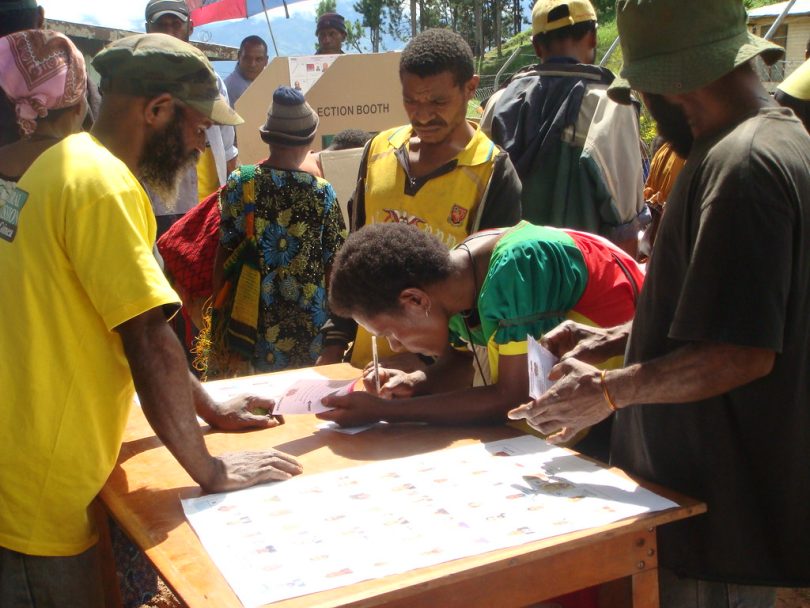Papua New Guinea’s 2022 national elections have been referred to as the worst in history. Transparency International PNG Executive Director Arianne Kassman told me, “The media was not allowed into counting centres. Mobile phones were confiscated at one stage. The media was not able to cover counting of elections and to date there is no list of how many people actually voted in the country’s national elections.”
On 28 September, we observe Access to Information Day, a time to reflect upon and celebrate citizens’ universal right to access public information. Having access to such information is not only a right, but also a critical tool to hold people in power accountable. When people have access to information, they can make informed decisions and participate meaningfully in shaping policies and decisions. In other words, enabling citizen engagement in governance processes can help prevent wrongdoings.
Yet, according to a recent public survey conducted by Transparency International across ten Pacific Island countries and territories, only 14% of people think their governments regularly take their views into account.
But there have been some advances in the Pacific this year.
At the regional level, it’s important to recognise the investment the Pacific Islands Forum puts towards civil society engagement in the lead up to its annual leaders’ meetings, a space that is increasingly being reflected upon in order to provide for more meaningful engagement each year.
This year’s public seminar with political representatives from Fiji and the Cook Islands, on the sidelines of the Forum Economic Ministers Meeting (FEMM), was a valuable opportunity for Fijian and regional civil society stakeholders to ask critical questions and engage in discussions on a range of issues, including the status of people’s rights to information in the Pacific. In response, it was encouraging to hear the political will on this issue from the leadership of these two countries.
“Access to information is critical to ensure transparent and accountable government operations”, said Prime Minister of the Cook Islands and current Chair of the Pacific Islands Forum, Mark Brown.
“In a democracy one must ensure free media and Right to Information (RTI) institutional mechanisms are present to empower the people”, said the Deputy Prime Minister of Fiji, Biman Prasad. In Fiji, 2023 marked a significant step as the new government took measures to enable media freedom in the country after a long period of restrictions under the previous regime.
Meanwhile Vanuatu, a trailblazer on RTI within the region, is witnessing promise of further investment towards the country’s RTI unit, with a likely appointment of a commissioner to the unit.
But despite political will and legal and policy reform efforts in some countries, availing citizens access to public information is largely still a challenge across many Pacific countries.
Recent events have seen increasing attempts at media control in PNG and Solomon Islands. The vital role of independent media cannot be overstated in ensuring that citizens have reliable and unbiased sources of information. An open and free media environment is essential for preserving the public’s right to access information, fostering transparency, accountability and informed decision-making.
“There is still a struggle for civil society to access information. As we talk about the 2050 vision for the Blue Pacific Continent, we need to make sure our people are informed”, said the Executive Director of the Pacific Islands Association of Non-governmental Organisations (PIANGO), Emeline Siale Ilolahia, at the FEMM public seminar.
Media freedom and legislation enabling access to public information need to be in place across all Pacific countries. This ensures an obligation for governments to proactively disclose public information to their citizenry.
Some countries have these provisions, but they need to be strengthened to fulfil the intended purpose effectively. This requires the political will to prioritise resources and capacity support, as well as to tailor communication strategies to effectively reach a diverse range of stakeholders (taking into consideration geographical, socioeconomic, age and other differences).
I spoke to the legal officer at Transparency Vanuatu, who explained, “Often citizens, especially in the remote areas, have limited information to guide their voting and engagement in governance. Simply sharing information as is with citizens isn’t enough to ensure its uptake across all communities. Our organisation invests in translation to local languages and relaying it through plays.”
Some Transparency International Pacific chapters also offer free legal advice to those who approach them for guidance after having either witnessed or experienced corruption. Having such services offered by an independent public institution would additionally empower people to understand how to manoeuvre the public system to seek justice against corruption and other wrongdoings.
To conclude, I go back to the topic of national elections. It is an important time and opportunity for citizens to ensure political candidates that truly intend to serve the people are voted into government. Looking across Melanesia – Fiji and PNG concluded their elections last year, while Solomon Islands is gearing up for a national election soon. Lessons from prior experiences cannot overstate the importance of early investment in delivering timely and accurate information to the people to ensure they are able to vote without fear or influence.



Leave a Comment